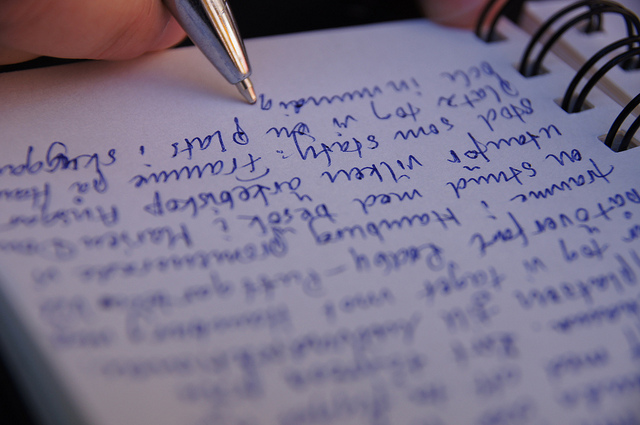What is a Reflective Diary

A reflective diary is a tool for getting more out of a learning situation or opportunity. A reflective diary will help you collect, remember and interpret your own feelings and responses, in a way that is useful to you in the future.
Reflective diaries are often encouraged during work experience or placements – times when there will be a lot going on many opportunities for learning. A reflective diary can help you get the most out of these kind of experiences.
Keeping a reflective diary can also help when it comes to applying for jobs or promotions – they are a record of key events and your experience of them.
Reflective diaries are one way to use a Learning Cycle
How to Keep a Reflective Diary
Getting Started
How and what you keep in a reflective diary is entirely up to you. A good starting point though, is to think about your current situation, and what you are hoping to achieve.
Some questions you might want to think about before writing your first reflective diary entry are:
- How do I see my role? What is my purpose and intention?
- What do I hope to achieve?
- What kind of employee/student/boss/etc do I think I am?
- What are my values?
- What are the values of my employer/school/profession?
If you have formal targets and objectives, you may also find it useful to remind yourself of these, so you can check your experiences against them.
Using STAR as a starting point
STAR is a technique for dealing with competency based interviews and applications, but you can also use it as a starting point for filling in your reflective diary – which has the added bonus of providing you with a ready-made record when it comes to applying for new jobs!
Each time you write an entry in your reflective diary, you can use STAR to provide some framework and structure.
Learn more about the STAR approach
Situation
Think about the context of the situation. If you were talking to someone who knew nothing about what you are doing, what would you need to tell them to bring them up to speed? Or to put it another way, what would you need to write down to remind yourself of the situation around the task and your actions?
Task
The task element of ‘STAR’ refers to exactly what you were asked to do. This might be a specific target that was set, or perhaps a more general project that you were involved with. It might be a task given to you by an employer, teacher or manager. Or it might be necessitated from the situation.
Action
What exactly you did in response to the task, given the situation was what it was.
Try to be as precise, accurate and truthful as you can. When you are using ‘STAR’ for job applications you will want to put a spin on things to emphasise your strengths and achievements. Your reflective diary is for you, and your development and learning will be helped if you include your negative as well as positive behaviours and achievements.
A starting point is to try to answer these questions:
- What did you do?
- Why did you do it?
- How did you do it?
- What did you hope would happen?
Result
Here you should think about what the results of your actions were. This might be some well defined outcomes, such as a report, or presenation. You could also think about what the follow on impacts of your actions might be – such as how many people your work reached, and how it altered their behaviour, or improved their situation.
You might find it helpful to try to answer these questions when thinking about your actions, and your personal response to them:
Evaluation Your Actions
- How successful were your actions?
- Did you receive any feedback from your boss/client/colleagues/teacher?
- Was there a formal evaluation process?
- What would you do differently next time?
Think about your personal experiences
- How did you feel at different stages of the experience (e.g. the situation before the task, when you found out the task, and when you implemented your actions)?
- What skills, knowledge or values did you demonstrate?
Remember though: the two most important things about a reflective diary are:
- You use it
- It is useful for you
So think of this post as a starting point, and figure out what works best for you.
Image: Fredrik Rubensson; Some rights reserved